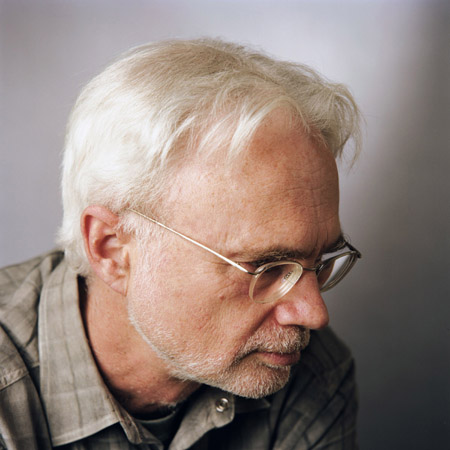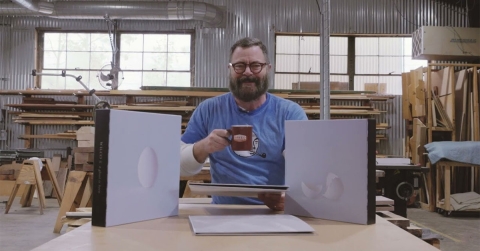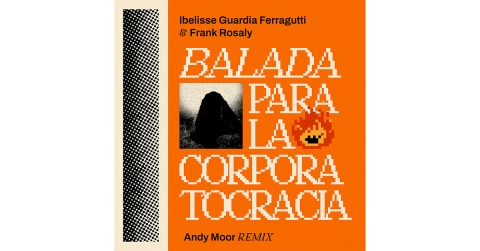John Adams's latest opera, A Flowering Tree, receives its first recording with the Nonesuch release out Tuesday, followed by Hallelujah Junction, a two-CD Adams retrospective and memoirs of the same name. "Adams's sound-world is still expanding," writes The New Statesman. "In this, the composer's seventh decade, his musical fertility still springs anew." Pitchfork gives A Flowering Tree an 8.4, asserting: "There are few living American composers writing works as universal and relevant as John Adams—and that deserves everybody's attention." The Telegraph, in its review of the forthcoming book, declares: "A musician's memoir would probably not be your first choice for light reading, but make an exception for Hallelujah Junction."
John Adams's latest opera, A Flowering Tree, which premiered in 2006, receives its first recording with the two-CD Nonesuch release out this coming Tuesday, September 23. Just two weeks later comes Hallelujah Junction, a two-CD retrospective of the composer's work, in conjunction with the publication of his memoirs of the same name, from Farrar, Straus & Giroux. All are available for pre-order now in the Nonesuch Store.
"Adams's sound-world is still expanding," writes The New Statesman's Ian Irvine, "and, with A Flowering Tree, it has embraced a new sweetness and lyrical beauty. In this, the composer's seventh decade, his musical fertility still springs anew."
Irvine prefaces his review of the new piece with an examination of the rich history of works that preceded it, describing its innovation and importance this way:
From his earliest major works, such as Shaker Loops (1978) and Harmonium (1980-81), he has possessed a fresh, young voice, ripe with possibilities. He forged his own rich and expressive musical language that could speak to a mainstream audience out of the exciting but austere minimalism of composers such as Steve Reich combined with other influences of his time, from the rock and pop of, say, the Beach Boys and the Supremes, through the jazz of John Coltrane and Sonny Rollins, to the great American mid-century musicals and some eccentrics such as John Cage ...
Focusing on Adams's impact on the world of opera in particular, the writer fondly recalls his introduction to the composer's first in that medium:
Although it is now 21 years since the premiere of his first opera, Nixon in China, I still remember the euphoria I felt on first hearing it. At last! I thought. Opera isn't dead! Benjamin Britten isn't the final master to enter the operatic canon. This will enter the repertoire of houses across the world and still be performed in fifty, a hundred years' time.
Bringing the reader to the present, Irvine says of A Flowering Tree, "The work is immediately appealing, though not in the familiar mode of Adams, fizzing with energy, speed and exhilaration, but with gentle pulses and shimmering textures. It rises at several points ... to intense climaxes that are reminiscent of the ecstatic musical representation of nature in Janácek's Cunning Little Vixen."
To read the complete article, visit newstatesman.com.
---
Pitchfork gives the recording of the opera an 8.4. Reviewer Jayson Greene says, in the site's inimitable style, "Adams's score is almost narcotic in its gorgeousness. Like the lead character, the orchestra shape-shifts, transforming from full-blown clamor to eerie, hollow whines."
Greene concludes: "There are few living American composers writing works as universal and relevant as John Adams—and that deserves everybody's attention."
---
The Telegraph takes a look at the forthcoming memoir, Hallelujah Junction, and concludes that Adams is "a composer as clever as he's courageous."
Reviewer Ivan Hewitt recommends the book for readers both in an outside the world it most closely examines. "A musician's memoir would probably not be your first choice for light reading, but make an exception for Hallelujah Junction," he asserts. "Adams is that rare thing, a living classical composer who cuts a big figure outside the small world of contemporary music."
He describes the story Adams tells this way:
His memoirs paint a vivid picture of American culture in the Sixties and Seventies. Adams is amusingly frank about his brief stint in the counter-culture ... The story of how he hauled himself out of confusion and self-pity, and found his composing voice by marrying minimalism with good old-fashioned expressivity, is well told.
The reviewer concludes: "Both Adams's music and these fascinating memoirs prove him to be a subtle and intelligent man, with more courage than many of his critics—safe in their subsidised havens—have ever displayed."
Read the complete article at telegraph.co.uk.
- Log in to post comments



